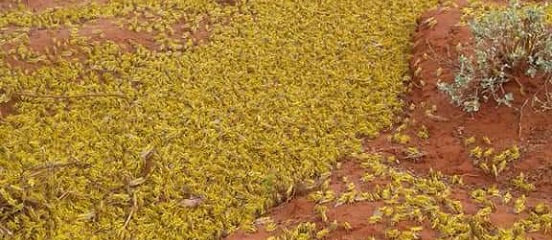In the face of the COVID-19 pandemic, millions of people living in rural pastoral and agro pastoral areas across sub-Saharan Africa are struggling to care for the animals on which their livelihoods depend.
Curfews and restrictions on movement and gatherings have cut communities off from markets, hampering their ability to buy vital animal health products and services, and decimating their incomes as they are unable to engage in petty trade.
With funding from Irish Aid, Farm Africa is working to ensure that more than 100 groups of pastoralist women in Karamoja in north-eastern Uganda, are able to keep their goats healthy throughout the COVID-19 pandemic.
The women are all members of Women’s Livestock Groups, who are taking part in Farm Africa’s Livestock for Livelihoods project, funded by UK aid from the UK government and Jersey Overseas Aid.
Each woman taking part in the Livestock for Livelihoods project has received or will receive two female goats, which will enable them to earn money from goat-rearing businesses and improve their families’ nutrition through access to goats’ milk and meat and the ability to buy a wider range of foods.
Around a third of the women received their goats direct from Farm Africa, under the condition they would pass on two goat kids to another woman in their group once they had reproduced.
The local female goats (does) are being cross-bred with Toggenburg bucks, a breed of goat known for its high milk and meat production.
Before the COVID-19 pandemic, the Women’s Livestock Groups, each made up of 25 to 30 women, met weekly. At the meetings they each made small contributions to a central fund, which was used to pay Community Animal Health Workers to deliver vital animal health services such as vaccinations and spraying goats to reduce the incidence of ticks.
The pandemic has put an end to the weekly savings meetings, as well as the ability of many of the women to earn money and be able to afford the contributions.
The groups’ inability to pay for animal health services jeopardised the health of the new goats, and their ability to produce milk and reproduce. In turn, this risked the health and incomes of the families depending on the goats.
The Irish Aid funding has enabled Farm Africa to step in and cover Community Animal Health Workers’ fees to spray, deworm, treat and vaccinate the goats to safeguard their health and productivity during this unprecedented period of disruption.
The funding has made it possible for Farm Africa to source vital supplies for the Community Animal Health Workers, such as deworming medicines, tick prevention sprays, and treatments for common ailments, as well as equip them with PPE so they can safely interact with the goats’ owners.
By safeguarding the health of goats, the support from Irish Aid is safeguarding Karamojong women’s ability to have milk for their children, manure for their kitchen gardens and an opportunity to build their herd, as well as engage in value addition, and generate much-needed income.
For the Community Animal Health Workers, it means sustained employment when their livelihoods were at risk. And for local businesses, including agro-input dealers and other stockists, it means much needed trade that will help keep their businesses afloat during this difficult time.
Completion of the vaccination campaign will hasten the lifting of the livestock movement ban in Nakapiripirit, Napak and Kotido districts under which Farm Africa is unable to distribute the initial stock of local does and breeding stock to a further 99 groups of women.


